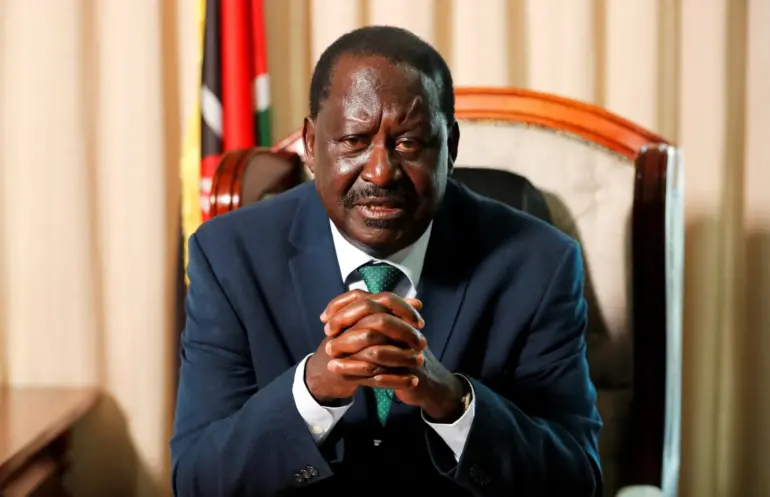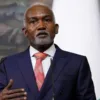Kenyan opposition leader and former Prime Minister Raila Odinga has died at the age of 80 during a medical visit to India, officials confirmed on Wednesday, a seismic moment in Kenyan politics that leaves a major void in the country’s opposition movement.
A towering figure in East African politics for decades, Odinga died while walking with family members and his personal doctor at a health facility in Kerala, according to Indian police.
“He suddenly collapsed while walking with his sister, daughter, and a personal doctor,” an Indian police official told AFP.
“Security officers from both India and Kenya were present. He was rushed to a private hospital nearby but was declared dead on arrival.”
His death was also confirmed by a member of his political team, who requested anonymity pending an official statement from his party.
A political titan and tireless opposition voice
Born on January 7, 1945, Odinga was a lifelong opposition stalwart and an enduring presence in Kenyan politics, contesting five presidential elections — in 1997, 2007, 2013, 2017, and 2022 — all of which he claimed were marred by electoral irregularities.
Despite never clinching the presidency, Odinga remained an influential national figure, especially in his native western Kenya and among the Luo ethnic group. A former Prime Minister (2008–2013), he was appointed to lead a coalition government formed after Kenya’s post-election violence in 2007–08, the worst political crisis in the country since independence.
Odinga was often cast as an anti-establishment figure, yet hailed from one of Kenya’s foremost political dynasties — his father, Jaramogi Oginga Odinga, was the country’s first vice president after independence in 1963.
Much of his early life in politics was marked by resistance to dictatorship. Under President Daniel arap Moi, Odinga spent years in prison and exile, becoming a symbol of Kenya’s pro-democracy struggle during the 1980s and 1990s. He entered parliament in 1992 and became a cornerstone of the opposition landscape ever since.
Outpouring of tributes
News of his passing sparked a wave of tributes across the region and beyond.
Kenya’s former Chief Justice and 2027 presidential hopeful, David Maraga, said he was “shocked” by the news, calling Odinga:
“A patriot, a pan-Africanist, a democrat, and a leader who made significant contributions to democracy in Kenya and in Africa.”
He added: “Kenya has lost one of its most formidable leaders who shaped the trajectory of our beloved country. Africa has lost a leading voice for peace, security, and development. The world has lost a great leader.”
Ethiopian Prime Minister Abiy Ahmed also paid tribute on X (formerly Twitter): “On behalf of the Government of Ethiopia, I extend my sincere condolences on the passing of former Kenyan Prime Minister Raila Odinga. May he rest in peace.”
A spokesman for the Sreedhareeyam Ayurvedic Eye Hospital and Research Centre in Kerala, where Odinga had been receiving treatment, provided further details: “He experienced breathing difficulties and collapsed. CPR was administered on site, and after some brief signs of recovery, he was transferred to a modern medical facility. Unfortunately, despite all efforts, his condition deteriorated and doctors were unable to revive him.”
Odinga’s death creates a leadership vacuum in Kenya’s opposition, especially with the next general election looming in 2027. Analysts say no single figure currently commands the same cross-regional appeal or grassroots mobilisation capacity that Odinga wielded for decades.
His political legacy — defined by resilience, defiance, and an unyielding pursuit of electoral justice — is likely to shape the next chapter in Kenya’s democratic evolution.
AFP


